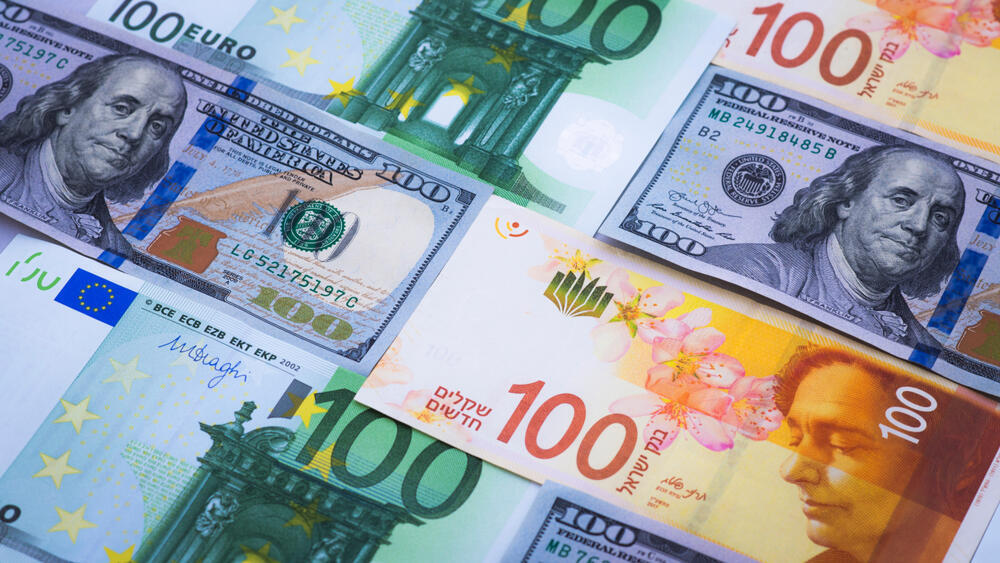The shekel weakened significantly on Friday against all foreign currencies, particularly the dollar and the euro, with the greenback traded near a five-month high of approximately 3.82 shekels, and the euro surpassed 4.1 shekels.
The shekel’s dip came amid heightened tensions with Hezbollah along the northern border, the deadlock in hostage talks with Hamas and the IDF's preparations to enter Rafah, coupled with low foreign exchange turnover during the Passover holiday season that allowed speculative activity in the market.
After market adjustments, the strengthening of the dollar and euro against the shekel has slightly moderated, currently trading around 3.81 and 4.08, respectively. Due to the rising dollar, gas prices are expected to increase next week, approaching a multi-year high.
Banks and investment houses have recently warned of significant volatility in foreign exchange rates against the shekel due to geopolitical and security instability, and the government's substantial deviation from its deficit target.
The approved budget for 2024 anticipated a deficit of 6.6%, but forecasts now predict a slip toward 8% to 8.5%, a situation that could prompt Fitch to become the third agency to downgrade Israel's credit rating after it abstained from doing so a few weeks ago, following in the footsteps of Moody’s and S&P.



